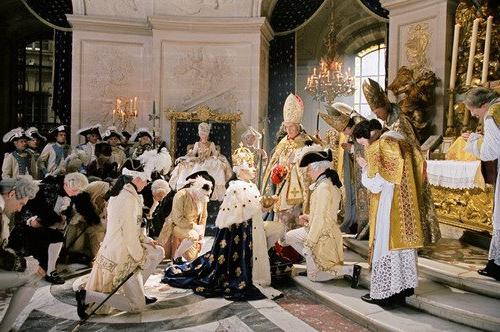Absolute monarchy is a form of government in which the office of head of state is exercised by a single person. The word ” monarchy ” comes from the Greek and means something like ” autocracy “. It is a particular form of government in which only a single person, the monarch rules the land. Political power is totally centralized in the hands of the sovereign, who exercises it in an undisputed manner.The government (the king) is considered absolute, as it could not be challenged or displeased.
Among the modern absolute monarchies can be attributed primarily to a number of Arab countries of the Persian Gulf – Saudi Arabia, Oman, Kuwait, the United Arab Emirates, Bahrain, Qatar, as well as the Sultanate of Brunei in another part of Asia. In a relatively pure form, the absolute monarchy has survived only in Oman, where there is no constitution and parliament or other representative body, the entire social and state life rests on the Quran, and the king is at the same time the highest spiritual person.
Signs of the Absolute Monarchy:
1. The existence of the sole head of state, who enjoys his power as King.
2. Hereditary (according to custom or law) order of continuity of supreme power;
3. The monarch exercises power for life;
4. The people are not the source of supreme state power and do not participate in determining who will be a monarch.
Absolute monarchies in Europe and in the world
In Europe, the only example of absolute monarchy is the Vatican City, currently governed by Pope Francis. The Vatican City is also an example of State Religion where the Head was selected by a form of religious hierarchy. Another example of theocracy is Iran. There are still several examples of absolute monarchy in the world today.
– Brunei, ruled by Sultan Hassanal
– Bolkiah – Oman, ruled by Sultan
Qabus of Oman – Qatargovernato by Emir emir Tamim bin Hamad al-Thani
– Saudi Arabia, ruled by King Salman
– Swaziland, ruled by King Mswati III
The monarchies in the World of parliamentary type are:
– Antigua and Barbuda
– Australia – Bahamas
– Barbados
– Belize
– Cambodia
– Canada
– Grenada
– Jamaica
– Japan
– Lesotho
– Malaysia
– New Zealand
– Papua New Guinea
– Thailand
– Tuvalu
– Solomon Islands
– Saint Kitts and Nevis
– Saint Lucia
– Saint Vincent and the Grenadines
.
Basic properties of absolutism, features of absolute monarchy.
For a clear definition of what this form of government is, the main features of an absolute monarchy are listed:
- The maximum degree of unification of power in the country.
- branched bureaucracy
- the existence of the army and the police;
- The presence of the aristocracy is the mainstay of the autocrat
- the idea of the divine origin of the monarch; the potential of the secret rulers of power
- economically (equality of different forms and types of property.
Under absolute monarchy, the autocrat was often endowed with spiritual power over his subjects, which further strengthened power, so that it became close to dictatorship.
Absolute monarchy is a form of government where a single individual, usually a king or queen, has complete and unrestricted political power over their sovereign state. Their authority is typically hereditary and not subject to legal limitations. Below, I’ll create a simple tabular guide to explain how an absolute monarchy works:
| Aspect | Description in Absolute Monarchy |
|---|---|
| Leadership | The monarch has supreme authority, often believed to be divinely ordained. |
| Succession | Power is usually inherited, often within a royal family. |
| Law Making | The monarch has the ultimate say in creating, altering, or abolishing laws. |
| Judiciary Power | The monarch often holds supreme judicial authority, above all courts. |
| Military Control | Complete control over the armed forces. |
| Diplomacy | The monarch represents the country in all foreign affairs. |
| Taxation | The monarch decides on taxation policies without needing approval. |
| Rights & Freedoms | Citizen rights and freedoms are often at the discretion of the monarch. |
This table simplifies a complex system and variations exist in different historical and modern contexts of absolute monarchies.
